Winter is coming. It has been a long and productive year in the garden, but many new gardeners may not know what to do with their raised beds. How can you prepare your raised beds for winter? What can you do before winter? Can you grow crops? What plants can grow during the winter? Read this article.
How can you prepare your raised beds for winter? There are many activities that you can do.

To prepare your raised beds for winter you can pull weeds in the bed, cover the bed with plastic, grow cover crops, amend and till the soil, or grow plants that can survive winter.
What plants can survive in winter? What should you know about composting and tilling your raised beds during winter? Continue reading.
Table of Contents
Preparing Your Raised Beds For Winter
Use the tips below to prepare your raised garden bed for winter.
Remove Weeds and Dead Plants
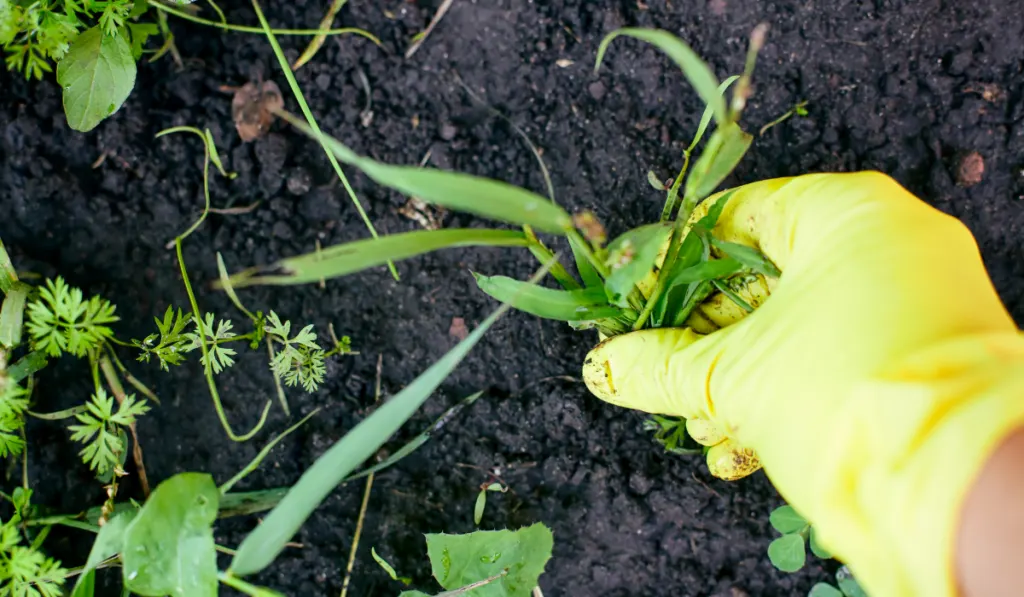
If you do not remove every visible weed, they will compete with your plants in the spring. You should pull out every weed in the raised bed. Also, dead plants can harbor pests that might overwinter in the soil, so you should remove all dead plants. You can use the weeds and dead plants in your compost pile.
Sometimes, weeds leave seeds or vegetative parts (parts that can regrow) in the soil. If you do not want to use herbicides, you can cover the raised bed with an opaque plastic. Leave the plastic on the raised bed over the winter. It will block sunlight from reaching the weeds and suffocate them.
Amend the Soil
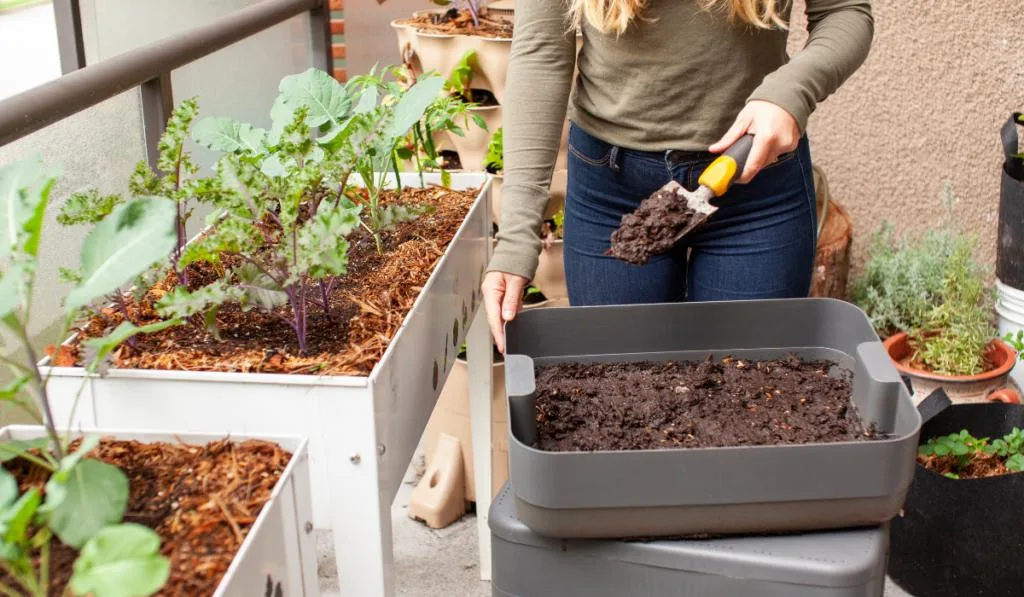
You can add compost or other soil amendments into your raised garden bed. This is important because most organic soil amendments can burn plants or promote the growth of fungi if used in spring (i.e. during planting).
If you amend the soil in late fall or early winter, the soil amendment will become a part of the soil before spring, making it safe to plant in.
Till the Soil
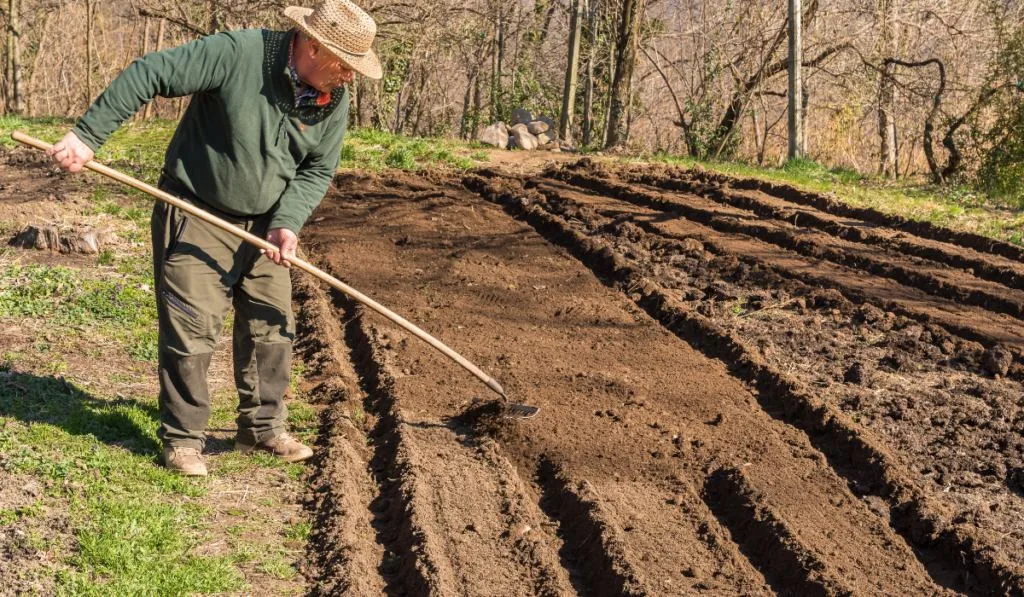
Sometimes, pests can dig into the raised garden to overwinter. Tilling the soil can expose these pests so that you can identify and remove them from the garden bed.
If you apply soil amendment, you should till the soil to mix the soil with the amendment.
Plant Cover Crops
Cover crops help prevent erosion, loss of nutrients in the soil and act as mulch or soil amendment. You should plant cover crops in early/mid-fall so that they can become established before winter.
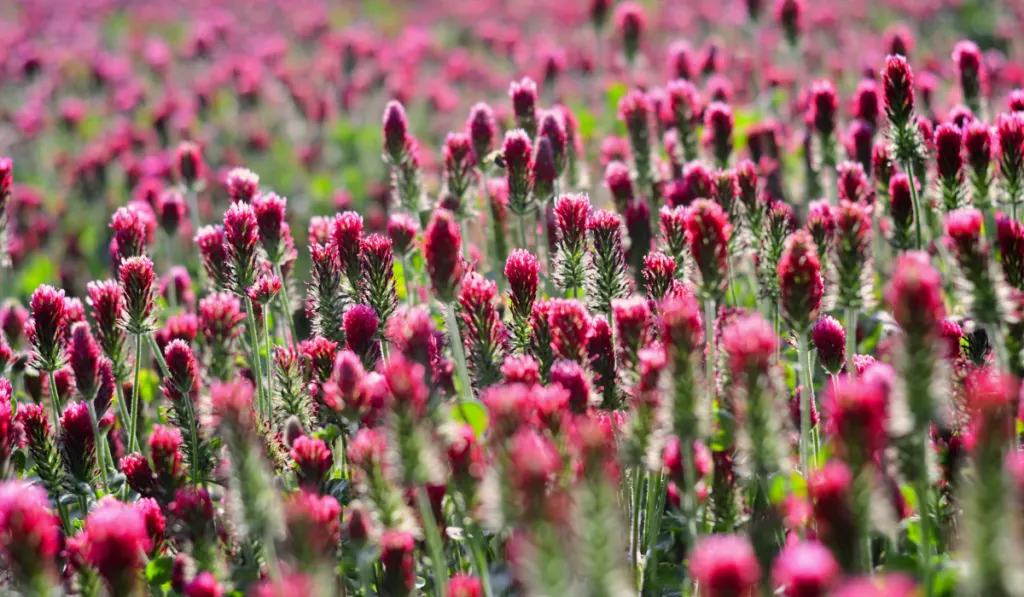
If they survive the winter, turn them under 2-3 weeks before spring. If they die in winter, you can leave them on the surface of the soil or turn them under.
Examples of cover crops are:
- Oats
- Barley
- Wheat
- Annual rye
- Crimson clover
Oats and a few cover crops can survive the winter.
Grow Plants That Can Survive Winter
If you like, you can grow plants that are winter-hardy. Some plants can be started in the fall, and harvested in early or late winter. You will need to give the plants more time and attention because of the winds and temperatures.
Note: Examples of plants that you can grow in winter are listed below.
You can cover the raised bed with transparent plastic to keep it warmer (like a greenhouse).
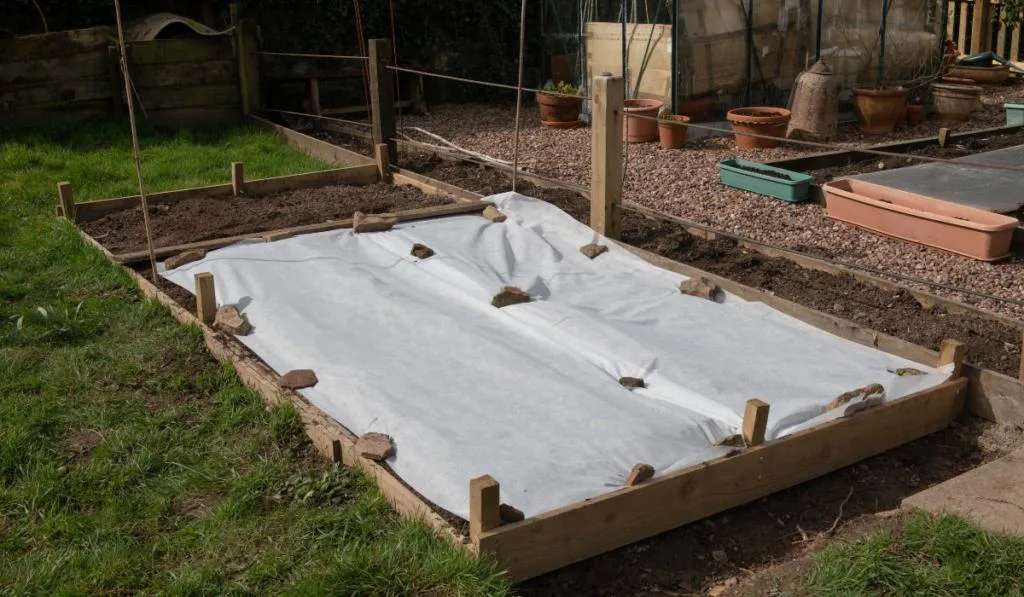
As you can see, there are a lot of ways to prepare your raised garden bed for winter. Let’s discuss some plants that can grow and survive in winter.
Plants That Can Survive Winter
The table below gives a list of vegetables and flowers that can grow in winter:
| Leafy Greens | Root Vegetables | Other Vegetables | Flowers |
| Kale | Garlic | Peas | Pansies |
| Leeks | Ginger | Broad beans | Heather |
| Lettuce | Onions | Cyclamen | |
| Asparagus | Radishes | Hellebores | |
| Swiss chards | Snow drops | ||
| Perpetual spinach | Winter Aconites |
Remember to research the best month to start the plants in the table above. Perennial plants native to your area can survive winter.
If you decide to grow any of the plants above, which will you choose?
Final Thoughts
Winter does not mean that you have to stop all of your garden activities. In your raised garden bed, you can amend the soil, remove weeds and dead plants, and till the soil. You can even grow plants that are winter-hardy.
How will you prepare your raised garden bed for the winter? Share your thoughts in the comment section below.
Resources
- https://www.almanac.com/content/preparing-your-garden-winter
- https://learn.eartheasy.com/articles/ten-ways-to-prepare-your-garden-for-winter/
- https://hellohomestead.com/how-to-prepare-a-raised-garden-bed-for-winter/
- https://www.daviddomoney.com/the-21-best-plants-for-winter-garden-colour/
- http://marinmg.ucanr.edu/Our_Projects/Leaflet/What_to_plant_and_harvest_in_the_winter_vegetable_garden/
- https://www.thompson-morgan.com/top-10-winter-vegetables
